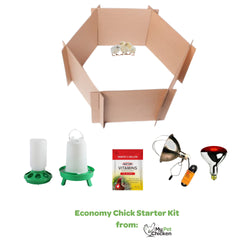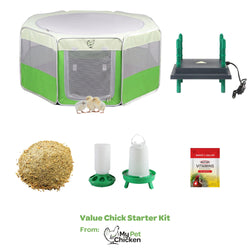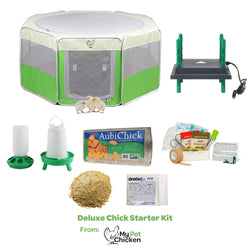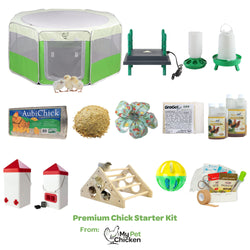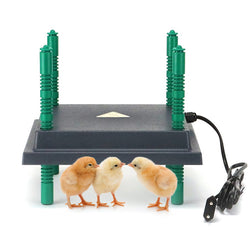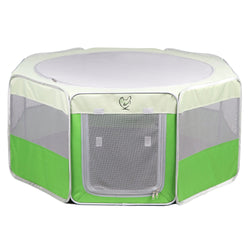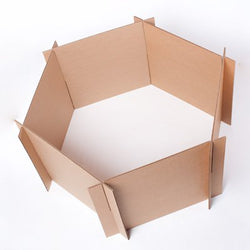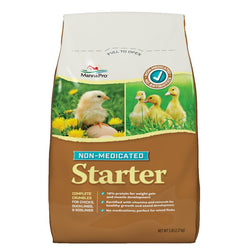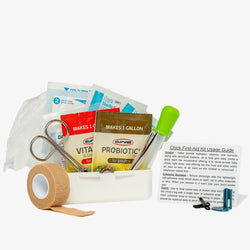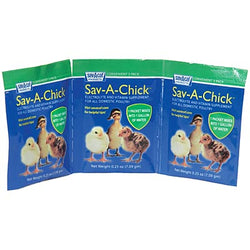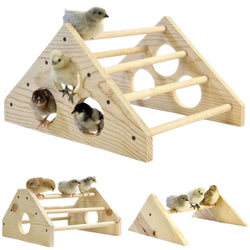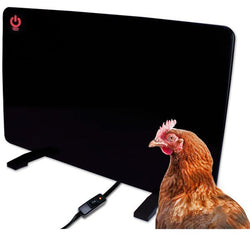Can bed bugs bother my chickens?
Back to blog
Ew, yuck! But yes: just as bed bugs can feed on dogs and cats, they can feed on chickens, too. It's a particular problem with chickens in factory farms, moreso than small backyard flocks, because birds kept commercially are often crowded into spaces without enough room, and which aren't kept clean.
But here's the thing: cleaning isn't the answer if you end up with bedbugs in your house. You can't clean them out of your house or coop. Bedbugs are extraordinarily difficult to get rid of---many pesticides are not effective on them---so an infestation really requires professional help. The good thing is that one process for ridding a house of bedbugs is actually heat-based. Bed bugs die at about 122 degrees Fahrenheit. Remember, the fact that you're trying to kill something living in your bed means you probably don't want to use pesticides and poisons to saturate every crevasse. But luckily heat does a good job of getting even into hidden places where bedbugs may be hiding... and it leaves no toxic residue behind that could make you or your family sick.
So, if you have a bedbug infestation in your house, it's probably a good idea to treat your chicken coop, too, and vice versa. Probably the best method for treating the coopis to 130 for a few hours. IT's likely to be the best method for treating your house, too. Your chickens, of course, cannot be inside the coop while it's being treated. Since bedbugs generally feed at night, though, removing your chickens during the day when active feeding is not occurring, and treating the chicken house at that time, should take care of the problem.
But be aware that with very bad infestations of bed bugs, just like with bad infestations of mites or lice, your chickens may be anemic and lethargic from blood loss. The physical and mental stress they've been under makes them more susceptible to other illnesses, even once the bedbugs are gone, because it will take them a while to recover. So it may be a good idea to consult a vet or at the least provide a nutritional supplement for your birds to help them recover more quickly.
But here's the thing: cleaning isn't the answer if you end up with bedbugs in your house. You can't clean them out of your house or coop. Bedbugs are extraordinarily difficult to get rid of---many pesticides are not effective on them---so an infestation really requires professional help. The good thing is that one process for ridding a house of bedbugs is actually heat-based. Bed bugs die at about 122 degrees Fahrenheit. Remember, the fact that you're trying to kill something living in your bed means you probably don't want to use pesticides and poisons to saturate every crevasse. But luckily heat does a good job of getting even into hidden places where bedbugs may be hiding... and it leaves no toxic residue behind that could make you or your family sick.
So, if you have a bedbug infestation in your house, it's probably a good idea to treat your chicken coop, too, and vice versa. Probably the best method for treating the coopis to 130 for a few hours. IT's likely to be the best method for treating your house, too. Your chickens, of course, cannot be inside the coop while it's being treated. Since bedbugs generally feed at night, though, removing your chickens during the day when active feeding is not occurring, and treating the chicken house at that time, should take care of the problem.
But be aware that with very bad infestations of bed bugs, just like with bad infestations of mites or lice, your chickens may be anemic and lethargic from blood loss. The physical and mental stress they've been under makes them more susceptible to other illnesses, even once the bedbugs are gone, because it will take them a while to recover. So it may be a good idea to consult a vet or at the least provide a nutritional supplement for your birds to help them recover more quickly.
